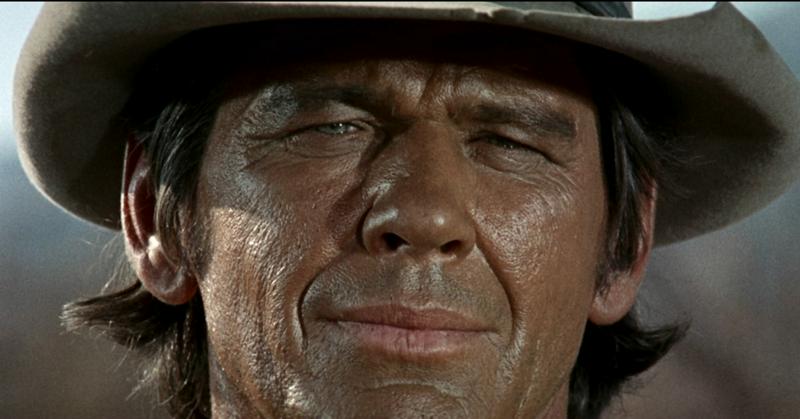So many actors throughout the ‘60s and ‘70s tried to exude a tough guy machismo, but Charles Bronson was the only guy was actually tough. He didn’t just grow up as the son of a coal miner, he was a child who was a coal miner. Bronson only got out of the mines thanks to World War II.
Bronson became one of Hollywood’s go-to tough guys in westerns and action movies, appearing in The Great Escape (1963), The Dirty Dozen (1967), Once Upon A Time In The West (1968), and Death Wish (1974), among many others. Before hitting the big screen, he was a regular on TV, having appeared in episodes of The Twilight Zone, Alfred Hitchcock Presents, Gunsmoke, Bonanza, and Have Gun Will Travel. He also starred as Mike Kovac in Man With a Camera, which ran for two seasons (1958-60) on ABC.
Throughout his life, he never had the demeanor of an actor, he didn’t like to talk about himself and when he did talk about his process he seemed to consider it to be much more of a job than anything else. Charles Bronson was an American classic, pensive, private and stoic. He was also one hell of a great actor.
This would have been the summer before I started school. I remember my father had shaved us all bald to avoid lice. Times were poor. I wore hand-me-downs. And because the kids just older than me in the family were girls, sometimes I had to wear my sisters’ hand-me-downs. I remember going to school in a dress.

And my socks, when I got home sometimes I’d have to take them off and give them to my brother to wear into the mines. Even though he was working in the mines as a child, he was the first member of his family to graduate from high school. At the time he was reportedly earning one dollar for each ton of coal that he mined.
Bronson spent his entire young life in “Scooptown,” a mining town that didn’t have anything but the houses where the workers lived and the mines where they worked. In an interview he noted that any time someone made a movie about coal miners they glamorized it, and made the towns look like actual towns, not the horrific places that he felt them to be. He said:
I remember the old company towns. There was no neon, except for the company store. Nothing was green. The water was full of sulphur. There was nothing to put a hose to. There were unpaved streets covered with rock and slag. You had the rock dumps always exploding. They were always on fire, down inside, and if it rained for a long enough time, the water would seep down to the fires and turn to steam and the dump would explode.

It may sound strange, but Charles Bronson couldn’t wait to be drafted into the military. Not only was America feeling extremely patriotic throughout World War II, but Bronson absolutely hated working in the mines and he wanted to get out any way possible. He told Roger Ebert:
When I worked, the rate was a dollar a ton. You spent one whole day preparing so you could spend the next day getting it out. The miners felt bound together; they knew how much they could get out, how much they could do. And they worked. With the new machines, it’s easier. Not more pleasant, but easier. But in those days, that was pure work. It wasn’t a man on a dock with a forklift or any of that bullsh*t. It was pure work.
Bronson said that when his draft card was pulled in 1943 he was ecstatic. Not only was he getting out of the mines, but for the first time his life he was going to get three square meals and a place to sleep. He said:
I was well fed, I was well dressed for the first time in my life, and I was able to improve my English. In Ehrenfeld, we were all jammed together. All the fathers were foreign-born. Welsh, Irish, Polish, Sicilian. I was Lithuanian and Russian. We were so jammed together we picked up each other’s accents. And we spoke some broken English. When I got into the service, people used to think I was from a foreign country.
